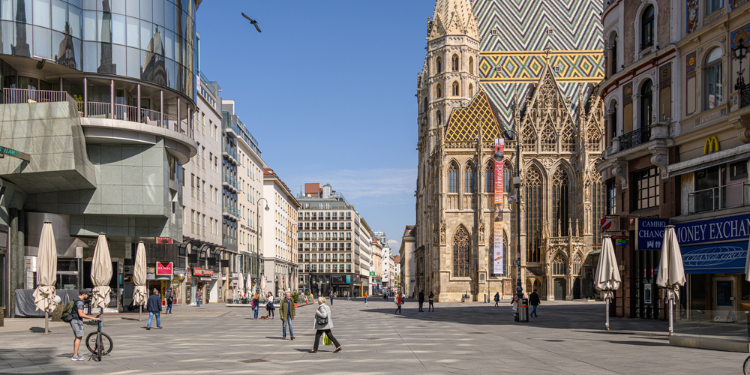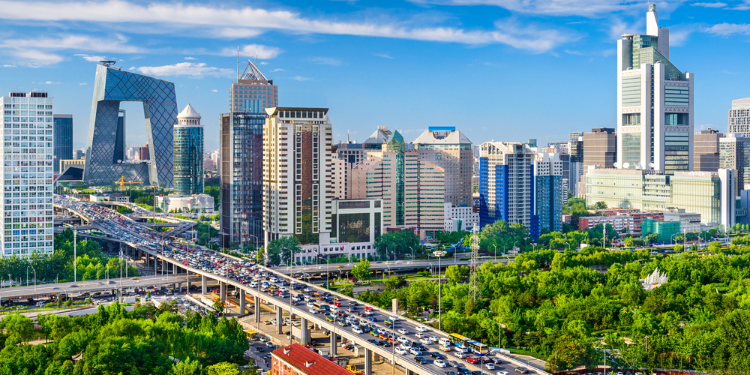

Hírek
Europe tightens restrictions amid new Covid wave
Who would have thought that Covid-19 would strike back so brutally this year? November 2021 sounds like a sad reminder that the virus is still omnipresent. The recent discovery of the new Omicron variant is shaking the planet. Caught in its 5th wave, Europe is tightening health and sanitary restrictions.
Return of border closures and quarantine
Will Omicron take the same path as the Delta variant? Since its discovery last Thursday in South Africa, cases have spread around the world: Israel, Belgium, United Kingdom, Malawi, Hong Kong, Australia, Italy, Germany, Czech Republic, etc. It has been reported that 61 of the 600 passengers on flights from Johannesburg to Amsterdam tested positive for the Omicron variant. 13 of them have symptoms of the virus. Europe, already affected by a resurgence of the Delta variant, is stepping up its anti-Covid measures, starting with closing its borders. France, Italy, the Netherlands, Germany, Belgium, the United Kingdom, etc., are suspending their links with South Africa despite appeals from the World Health Organization (WHO).Quarantine has also been reintroduced. In France, any person positive for the new variant or has been in close contact must be isolated, even if they are vaccinated. The United Kingdom now requires a mandatory PCR test 2 days after entering the country, along with self-isolation, also mandatory, pending the test result. This measure applies to all international travellers, whether they are vaccinated or not, regardless of their nationality. Until then, only an antigenic test, which is less expensive, was required, without the obligation to self-isolate. Since this test is less precise than the PCR, the Johnson government wants at all costs to prevent the situation from worsening.In Germany, hospitals are already saturated with the Delta variant. Health workers speak of a "war situation". Health Minister Jens Spahn points out that the German air force is transporting patients from one hospital to another in the country. His views are that this new wave is as traumatic as the early days of the pandemic, and Omicron is not helping. Scientists are appealing to Germany for even more restrictions, such as closing non-essential businesses, including Christmas markets.Belgium reintroduced curfew from 11 p.m. and ordered the closing of its nightclubs. Bars and restaurants have to close at 11 p.m. Customers must be seated, and no more than 6 are allowed at a table. Sports competitions and events will be held on-camera only. Other gatherings are prohibited, except for weddings and funerals. However, Switzerland, unlike other European states, has not tightened its Covid-related policies besides border restrictions. Travellers from the UK, Malawi, Egypt, the Netherlands and the Czech Republic now require a negative PCR test and self-isolation for 10 days.
Booster dose for all?
The extreme virulence of the Delta variant and the new Omicron variant are compelling states to step up emergency measures. The European Commission recommends making the validity of the health pass dependent on the booster dose. The booster should be administered at most 9 months after the 2nd dose. But States are free to accept the proposal or not. The Commission wants things to accelerate and hopes that this recommendation will be applied from January 10, 2022, so as to avoid misunderstandings between the States, which could have an impact on international mobility.Another change has been made to conditions for travelling to Europe. The Commission no longer wants to look solely at the epidemiological situation in the country of departure but to concentrate on the traveller's vaccination status. Home Affairs Commissioner Ylva Johansson announced that from March 2022, all vaccinated people who have received doses of vaccines validated by the European Medicines Agency (EMA) and the World Health Organization (WHO) would be able to travel to the EU. Since WHO accepts Sinopharm and Sinovac vaccines (unlike AEM), travellers who have received these vaccines will also need to provide a negative PCR test.Italy, Greece, Malta, Hungary, Poland, Germany, Norway and France have already scheduled their booster vaccination for all individuals over 18 years old, thus deviating from WHO recommendations. The countries have extended vaccination to any individual who had their 2nd injection 5 months before instead of 6. This is a radical change for Germany, which until then reserved the booster dose for over people 70s (excluding medical staff and people who are at risk). Iceland intends to open vaccination to all people over 16. Denmark is reintroducing the health pass (cancelled in September) and is considering opening the booster dose to all. Same for Belgium, which initially planned vaccination for all in 2022. The United Kingdom maintains the 6-month period between the 2nd and the 3rd dose. Besides, wearing a mask is once again compulsory in shops and transportation.Epidemiologists are still trying to reassure that the booster dose could prevent a global disaster. Omicron is likely to spread like wildfire within a month, according to some experts. Secretary of State for European Affairs Clément Beaune, recently announced on TV that "contracts between the EU and laboratories now indicate that laboratories have an obligation to adapt their products to new variants. Pfizer-BioNTech is studying the variant, with the first results expected within two weeks. Moderna intends to develop a booster dose specific to the Omicron variant.
Health pass
Initially planned to last until November 15, the French health pass has been extended until July 31, 2022. This is the result of the law of November 10, 2021, which authorizes the State to extend the health pass, strengthen controls and sanctions, etc. A health pass is now subject to a booster dose to remain valid. People aged from 18 to 64 have until January 15, 2022, to get their booster dose. For those over 65, the deadline remains December 15, 2021. Things are also changing in the United Kingdom. On Friday, November 19, the Department of Health announced that travelling outside the country would require the booster dose. However, people travelling to England, at least, for the moment, are considered fully vaccinated once they have received their 2nd dose. The NHS Covid Pass, a compulsory travel certificate, should contain proof of the booster dose. This proof will appear on November 29 on NHS Covid Passes for Wales, but not yet on those for Scotland or Northern Ireland. Scotland is considering an imminent integration but without giving a specific date. Northern Ireland, meanwhile, allows you to select your certificate (for domestic or international use).
Increased pressure on unvaccinated people
Currently, most European countries are trying to pressurize unvaccinated people without penalizing the vaccinated. France remains open, unlike Austria or Latvia, bordering the Netherlands and Belgium, where curfews have been introduced. There are no curfews, business closures or travel restrictions. However, the validity of the PCR tests for unvaccinated people has been reduced from 72 to 24 hours since November 29. Belgium is also increasing the pressure on unvaccinated people. According to recent studies, they are more likely to be infected with Covid and to have severe forms.The European Commission urges states to tighten restrictive measures to encourage vaccination, which looks like the only way to avoid another health disaster. WHO reiterates its calls for greater international solidarity. Gordon Brown, former British Prime Minister, supports and signs a column in The Guardian newspaper. For him, rich countries are racing for the booster dose and "grabbing available doses" while many "have not yet received a dose of vaccine". The WHO insists on triple vaccination for a good cause.
https://www.expat.com/en/expat-mag/6299-europe-tightens-regulations-faced-with-a-new-pandemic-wave.html
"Zero COVID" in China: a barrier to expatriation
Xi Jinping is determined to impose his vision on the world. Economic, political, diplomatic leader, or of the future according to Xi Jinping. Utopia or realistic project? Still cut off from the world with its zero Covid policy, does China still have the means to achieve its ambitions?
A risky "zero Covid" strategy
China is one of the few countries to maintain its "zero Covid" strategy. With an average of 34 infections per day, and 74.78% of its population fully vaccinated as of November 18, China is far from experiencing an epidemic outbreak such as the one observed in Europe. But Xi Jinping is aiming for the Beijing Winter Olympics next February, with a target of 80% of the population vaccinated by the end of the year. Zero tolerance therefore, even if it means putting entire districts under lockdown. At the beginning of the month, 6 positive cases led to the confinement of Hongfuyuan, a district of Beijing with more than 20,000 inhabitants, for two weeks. Last month, the city of Lanzhou and its 4 million inhabitants were confined. The restrictions are imposed on everyone, including those who have been vaccinated. In north-east China, the city of Heihe is testing "citizen's denunciation", and promises 100,000 yuan (about 13,500€) to anyone who finds the origin of a local outbreak of COVID.
However, the effectiveness of Chinese vaccines is still being determined, especially in the face of the virulence of other COVID strains, including the Delta variant, obviously. However, China continues to ban all foreign vaccines, preferring to develop its own formulas, in particular, new messenger RNA vaccines. The country has been living in a bubble for almost two years, and does not seem to want to change its policy anytime soon. This voluntary isolation is another way for Xi Jinping to impose himself internationally. While other states (Australia, New Zealand, Singapore...) have abandoned the "zero Covid" strategy, China is staying the course. Observers say it is impossible to go backwards. Xi Jinping wants to be the stronger man, against the occident that seems unable to control the pandemic. Foreigners, investors, businessmen and women, Chinese and international students are, thus, seeing their projects fall through because of Chinese policy.
Is China still attractive?
Closed borders, almost non-existent international flights, lockdowns, quarantines, compulsory PCR tests including for vaccinated people, restrictions... All these measures lead to a decline of the Chinese economy and the morale of expatriates. More and more expatriates are reviewing their career plans. The restrictions are getting the better of the most resilient. 70% of the member companies of the American Chamber of Commerce in Shanghai admit that they are struggling to recruit foreign talent. Talent that is essential to growth. For observers, China must change course or review its ambitions. The government is assuming and hammering away: it will be the leading economic power by 2049. The date is not chosen at random. It corresponds to the hundredth anniversary of the Chinese Communists' taking power. It is the only country to have ended the year with a 6% increase in investments, i.e. more than 150 billion dollars of capital. Very quickly, it is once again the world's leading supplier, especially of masks. According to the Ministry of Commerce in Beijing, China exported 220 billion masks last year, an average of 40 Chinese masks per person.
But these figures mask precarious economic health. After a promising first quarter (+18.3% growth), the country's economy is now in decline: +7.9% in the second quarter, +4.9% in the third quarter. The fault lies with the significant electricity shortages that are slowing down industries. Steel, cement and aluminium production, key sectors of the Chinese economy, have been affected. Government-imposed rationing is not helping. Private sector debt is 127% of GDP, almost as much as the US rival (125%). But Chinese productivity remains lower than that of the major powers. The economy is slowing down. Inflation is rising, and household consumption remains fragile.
Another pillar under threat: real estate. The sector, which represents no less than 30% of GDP and 20% of jobs (including furniture sales), is over indebted. Xi Jinping is counting on the real estate giants to build this "new era", the highlight of his (and almost assured) third term. It is impossible for the government not to tackle the real estate bubble, which has been the source of growth for more than 20 years.
For many expatriates and to-be expatriates, the choice seems to be made: China itself has given up its international talent. Western entrepreneurs are raising the red flag claiming the closure of the country is killing international trade. Ker Gibbs and Alan Beebe, presidents of the American Chambers of Commerce based in Beijing and Shanghai, have announced that they will be leaving their positions in the coming months. For Ker Gibbs, it is openness to the world that has allowed China to become one of the world's leading economies. However, its current policy goes against the free flow of international trade. Gibbs notes a decline in the number of expatriates and students in China. The country is losing its attractiveness. These fears remain for 2022, as China is still clinging to its zero tolerance policy. Observers warn that the country risks paying for its policy in the long term. IT experts, researchers, scientists, analysts, computer programmers... Talents in the high-tech sectors are already leaving for other countries, or are giving up on China.
https://www.expat.com/en/expat-mag/6282-zero-covid-in-china-a-barrier-to-expatriation.html
Investor who will build the port of Durres for CNN: 'New Europe' attractive to me, Albania has positive indicators
The head of "Emaar", Mohamed Alabbar, a company that will build the tourist port of Durres, in an interview with CNN says that Albania is the "New Europe" and calls it a dream to invest in the port of Durres.
Among other things, he assessed that Albania has all the positive indicators to attract foreign investment.
"' New Europe' is very attractive to me. When I see Albania, what is happening with the government there, I see how much everyone is working to develop the country, to move it forward, and how to say I want to be the first to go there. "Because all the indicators are right, a twofold increase in tourism, 450 kilometers of amazing coastline overlooking nearby Greece ," he said.
Asked if this is the second front in the "New Europe" after investing in Serbia, Alabbar said that " Impressive economic growth, labor force, the government that works day and night to become part of the real Europe" , he said .
Asked if the image that the country has in relation to corruption hinders him, Alabbar replied that “ unfortunately Albania has a past, because of the previous governments, maybe since before the 90's and it has faced it, it should have to pass at this stage ”.
"Nothing is done overnight, but they have succeeded and all indicators are very positive in my opinion, so I am investing in a significant project and I am very proud to be the first in this regard ," he said.
Asked about the investment that will be implemented in an area of 800,000 square meters, with residential complexes, hotels, offices, model that has been implemented in Dubai, Alabbar said that “ I think I have realized this in many countries, but i "The last one was in Serbia, where we took over the train station, and I did the same and it worked extremely well."
" I really believe that this thing works everywhere in the world, if it does well, with the right partners, to build the largest port on the Adriatic Sea in Durres with over 12 thousand apartments, hotels, restaurants and shops, I think for me it is how can I have a dream that I go and turn it into reality " , he said.
https://politiko.al/english/e-tjera/investitori-qe-do-ndertoje-portin-e-durresit-per-cnn-europa-e-re-terheqe-i435148










